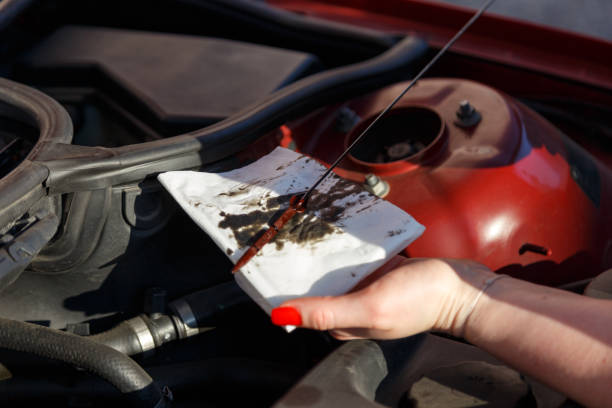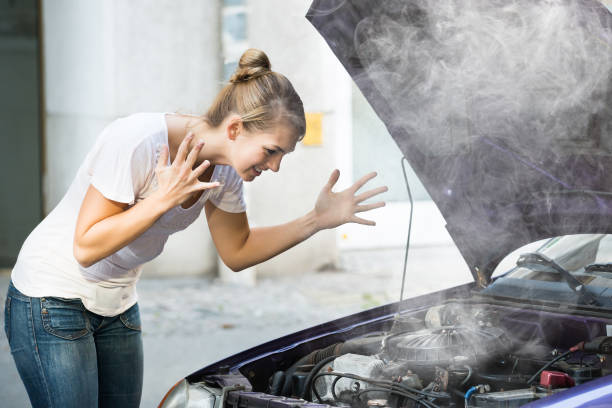A burnt smell in your car, especially when linked to washer fluid, is a problem you shouldn’t ignore. Not only does it affect your driving experience, but it could also signal underlying issues that, if left unchecked, could lead to expensive repairs. This article will help you understand what causes that strong washer fluid odor, how to identify washer fluid system problems, and how to fix them before they worsen.
What Causes a Burnt Smell from Washer Fluid?
A burnt smell in car environments can be unsettling, and there are several reasons why it may happen. One of the common causes is the overheating of the washer fluid reservoir. However, issues in the washer fluid system could also stem from electrical faults or improper fluid use. Here are the main reasons:
Washer Fluid Heating Up
When you use your windshield washer fluid, it often passes through heated components, especially in colder climates. This process can lead to the overheating washer fluid reservoir, which causes the fluid to break down. Overheating can occur due to malfunctioning parts like a washer fluid pump or if high-quality washer fluid is not used. When these fluids overheat, they can emit a strong chemical odor or even a burning rubber smell, signaling that the fluid has been exposed to temperatures it cannot handle.
Faulty Wiring and Electrical Issues
Another common cause of burnt smells is faulty wiring in car components. The washer fluid pump is electrically powered, and when there’s an issue with the wiring, such as frayed electrical wiring or short-circuited wiring, it can cause an electrical burn odor. This happens when the wires overheat and burn out, causing a noticeable burnt smell in the cabin of your vehicle.
Using Improper or Low-Quality Washer Fluid
Using low-grade washer fluid can also cause burning smells. Some washer fluid additives are not designed to withstand high temperatures. The result? Your windshield cleaning fluid could burn more easily, producing a strong chemical smell. Moreover, car fluid evaporation can leave residue in the washer system, contributing to the burnt odor.
Common Signs of Washer Fluid-Related Burnt Smells
Understanding the signs of washer fluid-related burnt smells is crucial for diagnosing the issue before it becomes serious. Here’s a list of typical signs that point to washer fluid leaks or system malfunctions:
- Strong Chemical Odor: If you smell a pungent, burning chemical odor when operating the washer, it could indicate overheated fluid or electrical issues.
- Unusual Noise from Washer Pump: A struggling or failing washer fluid pump can make unusual noises, such as a high-pitched whine, which typically accompanies overheating components.
- Washer Fluid Reservoir Overheating: Look for signs of washer fluid reservoir damage or excessive heat around the area where the fluid is stored.
- Funky Streaks on Windshield: If you notice that the windshield fluid leaves streaks that weren’t there before, it may be a sign that the fluid has degraded or that the system is malfunctioning.
How to Fix a Washer Fluid Burnt Smell
A burning smell troubleshooting approach can help resolve the washer fluid odor issue. Here’s a step-by-step guide on how to handle these problems:
Inspect the Washer Fluid System
The first step to solving washer fluid system malfunctions is to inspect the entire system. Make sure you check the washer fluid reservoir for any damage or signs of overheating. Over time, the gaskets and seals around the reservoir may wear down, causing the fluid to leak and degrade.
How to Inspect:
- Check for leaks: Inspect all hoses, the washer fluid pump, and the reservoir itself for washer fluid leaks.
- Look for residue: If there’s a noticeable oily or chemical residue around the pump, it indicates fluid degradation.
Check for Leaks
Car fluid leaks are one of the primary contributors to the burnt odor. Leaking washer fluid not only causes bad smells but also leads to poor washer performance. Sometimes, leaking washer fluid can drip onto hot engine parts or the exhaust manifold, amplifying the burnt smell.
Steps to check for leaks:
- Look around the engine bay for engine bay leaks.
- Inspect hoses for wear, cracks, or loose connections that may allow fluid to escape.
- Check for washer fluid leaks near engine components that may cause the fluid to evaporate and burn on hot parts.
Test Electrical Components

The car electrical components that power the washer fluid system, including the washer fluid pump and wiring, are susceptible to damage. If there’s a faulty wiring in car systems, such as frayed electrical wiring, it could cause the system to overheat, resulting in that unpleasant burning rubber smell.
Electrical component checks:
- Look for signs of burnt or damaged wires.
- Test the washer fluid pump and check for any malfunctions in the system.
- Consider checking fuses and relays for electrical burn issues.
Use High-Quality Washer Fluid
One of the easiest fixes to avoid a burnt smell from washer fluid is to use the correct fluid. High-quality washer fluid helps the system operate smoothly and reduces the chances of overheating or poor performance.
Why high-quality washer fluid matters:
- Higher resistance to evaporation and breakdown.
- Less likelihood of causing clogs or residue buildup.
- Better performance, especially in extreme temperatures.
When to See a Mechanic
If you’ve followed the above steps and still experience issues, it’s time to visit a professional mechanic. Some problems, like washer fluid pump malfunction, short-circuited wiring, or significant damage to the washer fluid reservoir, require advanced diagnostics and repairs. Here’s when to seek help:
- Persistent Smell: If the burnt smell doesn’t go away after checking the system, it could indicate a deeper problem.
- Inconsistent Washer Function: If the system doesn’t spray properly or the washer fluid doesn’t reach the windshield effectively, it’s a sign of failure.
- Electrical Issues: If you see signs of frayed electrical wiring or problems with the car wiring system, a mechanic will need to handle this.
- Major System Failures: If the washer fluid system needs major repairs or replacements (like a new washer fluid reservoir), it’s best left to a professional.
Frequently Asked Questions (FAQs)
Is a burnt smell from washer fluid dangerous?
A burning smell troubleshooting approach is crucial for safety. Although the smell itself is not immediately harmful, it indicates that components are malfunctioning. Ignoring it could lead to system failure or even a fire if there’s a significant electrical burn odor or overheating washer fluid reservoir.
Can I use any fluid in my windshield washer system?
Using the wrong type of washer fluid can cause overheating, clogs, or other issues. High-quality washer fluid is designed to resist evaporation, ensuring optimal performance and preventing the development of burnt odors.
Why does my washer fluid smell burnt only after using it in winter?
In cold weather, washer fluid additives designed for winter use can sometimes evaporate quicker, especially if the system isn’t properly maintained. This leads to the burnt smell when the fluid hits hot engine parts.
Can I fix the washer fluid system myself?
DIY fixes are feasible for minor issues like fluid replacement or hose inspection. However, complex problems involving electrical failures, washer fluid system malfunction, or washer fluid pump malfunction may require professional attention.
Conclusion
A burnt smell in car from the washer fluid system is more than just an unpleasant odor. It’s a warning sign that your vehicle might have underlying issues that could become more severe over time. By properly maintaining your washer fluid system, checking for leaks, and ensuring electrical components are in good working order, you can prevent further damage and extend the lifespan of your car’s systems.
Always stay vigilant and perform regular car maintenance checks to ensure your vehicle runs smoothly. If the problem persists, don’t hesitate to consult a car mechanic for a professional inspection. Proper diagnosis and timely repairs will not only improve your driving experience but also prevent costly repairs in the future.
By following these tips, you can keep your windshield cleaning fluid system in top shape and avoid unpleasant burnt smells in your car.
Also Read More Article : Do You Tip Car Detailers?
